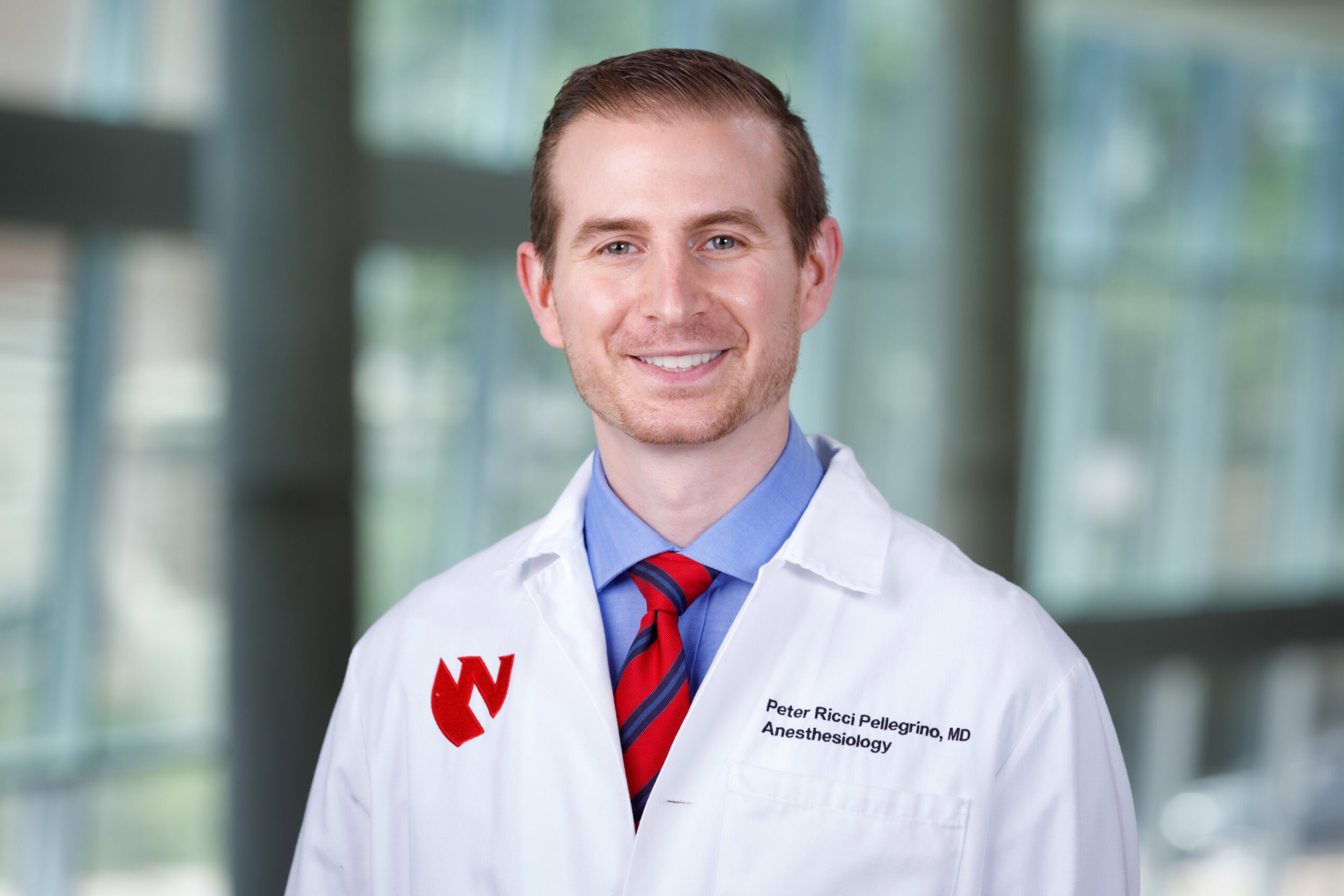Name: Peter Ricci Pellegrino, MD, PhD
Medical school you attended/year you graduated: UNMC, Class of 2018
Fellowship at UNMC: Pain medicine
Program director: Michael Lankhorst, MD
How long is your training program and how long have you been at UNMC?
The ACGME-accredited clinical fellowships in anesthesiology are each one year long, but this is my 14th year at UNMC. I started here as an MD/PhD student and stayed for my residency in anesthesiology and fellowships in critical care and pain medicine.
What do you like the most about your training program?
The attendings in our division are great humans, astute teachers and role-model clinicians, and the educational support staff in the Department of Anesthesiology is phenomenal. That said, my favorite aspect of my training program is the patient care. I really enjoy bonding with patients and families and shepherding them through vulnerable situations. In Pain Medicine, many of the patients we meet have had a difficult journey both inside and outside the medical system. When we alleviate the pain of a long-suffering patient, we create a very powerful relationship of trust and gratitude. The functional recoveries that our patients mount once their pain is better controlled can be inspirational, and I find my role in this process to be very rewarding.
What challenges do you foresee in graduate medical education in the future?
In the last 14 years, I have seen medical education shift away from broad-based foundations to become increasingly specialized. I really do think that this momentum, particularly at the medical school level, has been positive, but I foresee this becoming an increasingly challenging issue. As an anesthesiology resident, I completed a multidisciplinary internship year, and I’m really indebted to the surgeons, cardiologists, nephrologists, internists, intensivists and other attendings who spent time teaching me. I worry about what we lose as we become increasingly siloed, and I think it will be a challenge to make sure we’re striking the right balance between foundations and specialization in the decades to come. On a different note, I also worry how much time the average resident will spend waiting for Epic to load each day once they start deploying artificial intelligence technologies that further tax computing bandwidth.
List some accomplishments that you are proud of:
- I have an amazingly supportive family who is No. 1 in every way.
- I am geekily proud of some of our research, which has resulted in a non-invasive method for measuring sympathetic outflow. After many years of multidisciplinary collaboration, we are on the cusp of translating this technology to humans.
- Caring for patients over the last six years with the help of my stellar attendings, co-trainees, surgical colleagues, consultants, nurses, respiratory therapists, techs and more.
Tell us three things about you that others may not know:
- My family has a strong history of cardiovascular disease, and I have a personal interest in siRNA therapy for lipoprotein(a) lowering.
- My parents met at the Massachusetts General Hospital, where they worked together in food service.
- My wife and I only dated for a few months before getting engaged. This is a risky approach, but it really worked out in my favor.
